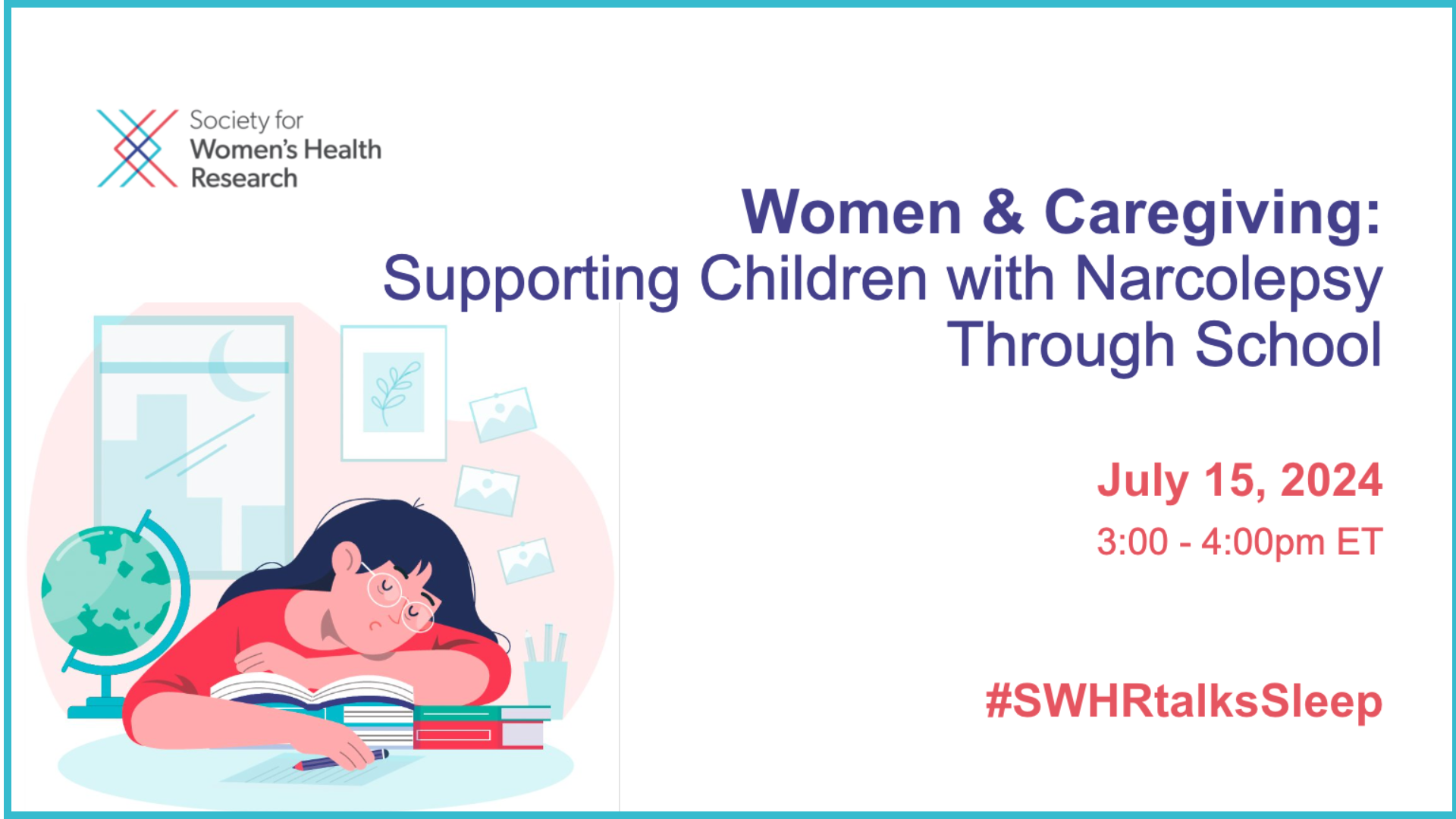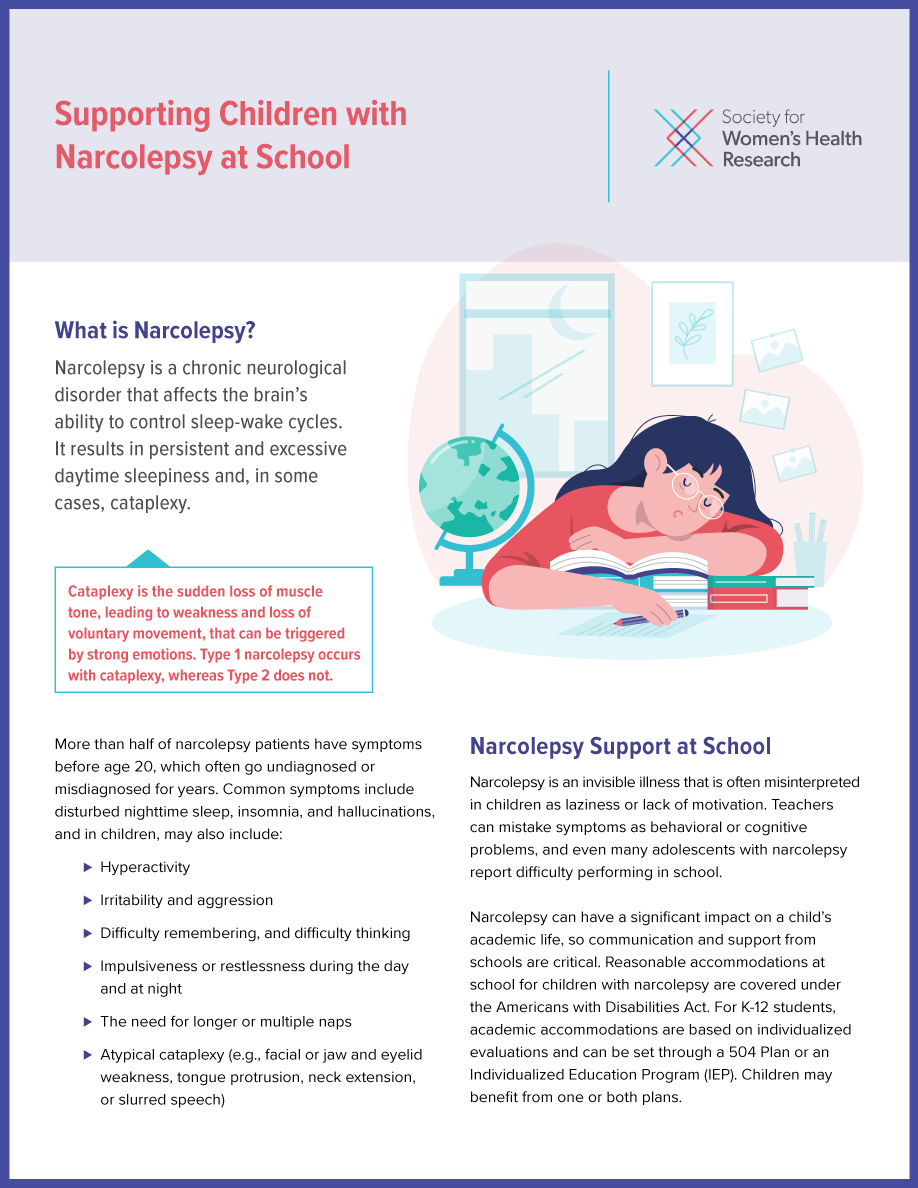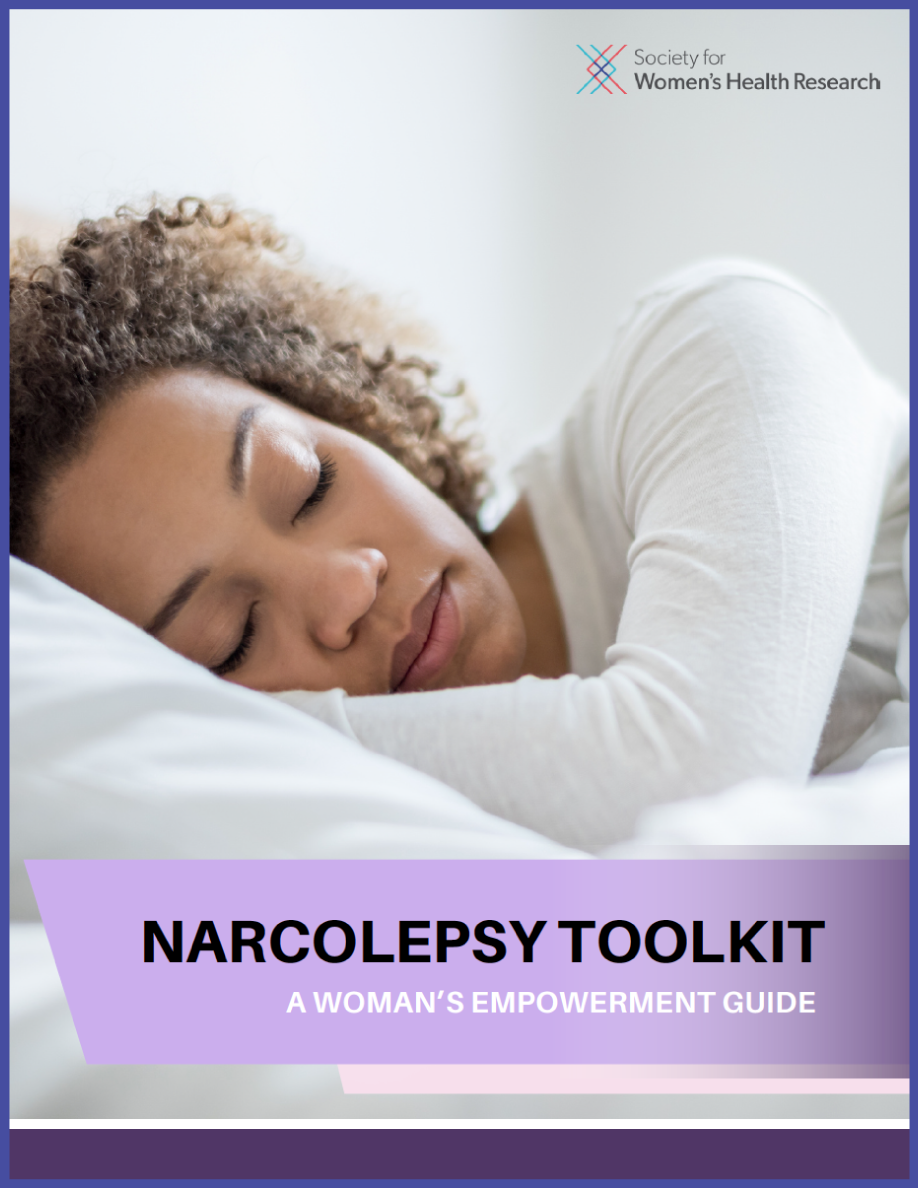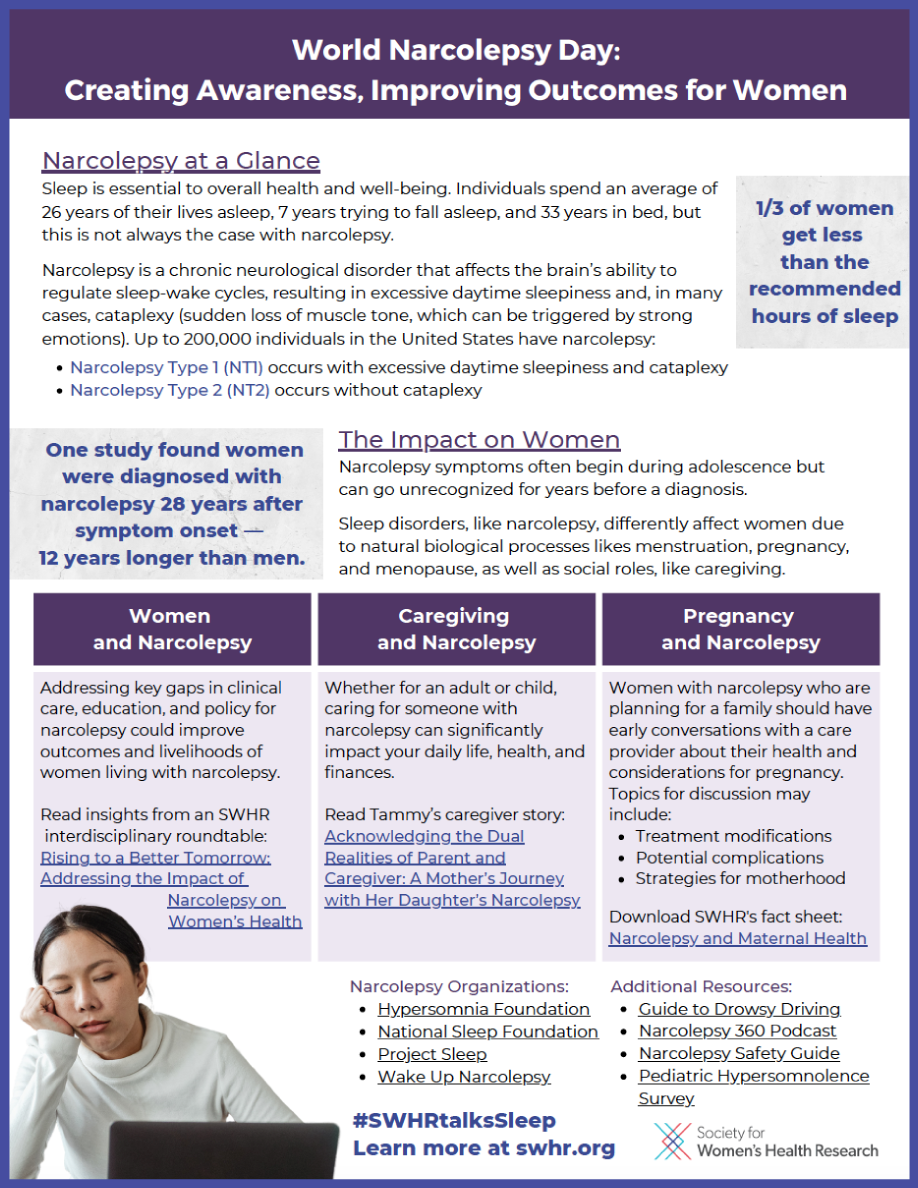Narcolepsy is a chronic neurological disorder of the sleep-wake cycle, characterized by persistent and excessive daytime sleepiness, nighttime sleep disturbances, and REM sleep-related phenomena that disrupt wakefulness. There are two types of narcolepsy – NT1 is associated with cataplexy (sudden changes in muscle tone that can be triggered by strong emotions) and NT2 does not present with muscle weakness.
Narcolepsy can have widespread impacts on daily life, including challenges with employment, school, and relationships. Although women and men are about equally affected and report similar narcolepsy-related symptoms, women are more likely to experience a lengthier pathway to an accurate diagnosis, up to 12 years longer than men. Many women with narcolepsy also face challenges during pregnancy and lactation, having to decide whether to stop medical treatment during this time. Building awareness about narcolepsy symptoms and treatment options among both patients and providers will offer women opportunities to identify symptoms earlier, reduce the delay in obtaining appropriate care, and make informed decisions about treatment throughout the life course.
Narcolepsy is part of the SWHR Sleep Network, which engages the following focus areas: Narcolepsy and Sleep Health.












